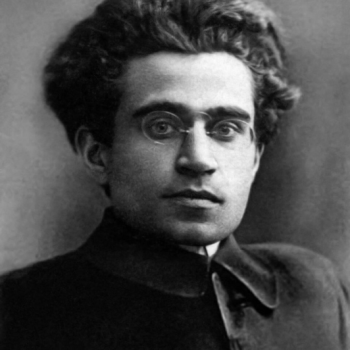This initiative, and other like it, represent what the pope calls for as a "spirit of gift," an attitude that sees business as a human enterprise which summons forth human creativity for the sake of promoting the well being of all people. What might this vision mean, practically, for us in the United States?
- It challenges us to rethink the structure of corporations answering to shareholders who do not care about the human impact of their investments.
- It invites business schools and even colleges and universities to train students to think of business not only as a way to make money, but as a way to contribute to the world's development.
- It summons individuals to invest in businesses that contribute to human flourishing, even if that might mean lower returns.
- It invites creativity among entrepreneurs, asking them to imagine their businesses as being engines driving development of communities. Examples in the United States might include Magic Johnson's enterprises or the Homeboy Industries.
- It suggests policies around taxation structure to encourage local initiatives rather than government spending to solve economic problems.
- It calls for the internationalization of labor unions.
- It invites increased microfinance and microcredit, to fund sustainable projects that help community self-development. The work of Nobel Prizewinner Muhammad Yunus is an example.
- It asks us as consumers to avoid products and services from companies whose products are bad for the environment, or who have unfair labor policies.
3. Democracy built on both responsibility and rights. What is true of the individual, the family, the company, and the community is also true of the nation: human beings must seek the well being of the whole human family and not only oneself or one's tribe.
The pope calls for a vision of the common good rooted in an authentic understanding of the person, a reverence for life that rises to the level of national and international policymaking. Religious discourse must not be banished from the public square, but must be part of a rigorous conversation about the aspirations of society seeking to build a just world. Governments, moreover, must respect the rights of individuals and encourage them to take initiative to build community through business and other initiatives. Implications include
- Voting on the basis of public good rather than private interest.
- Creative ways of bringing the disenfranchised into the public conversation.
- Robust appeals to religious traditions as contributing to healthy democracy.
- Applying the principle of subsidiarity (the belief that problems are best handled at the local level rather the national level) to many economic problems, but also leveraging national resources in areas of desperate need.
4. An international organization with muscle. This last point is vague in the encyclical, but its reasoning stems from the observation that the world's political and economic problems are international rather than national, and that there is no real mechanism that can address injustices at the international level. Americans tend to be insular, and so this last point is a real challenge: what might the world look like if an international authority like the United Nations could actually intervene in conflicts like those that led to genocide in Rwanda and Darfur? Or encourage trade to regions of the world currently excluded from the market? Or bring legislative authority to situations of tyranny, as in Myanmar or Zimbabwe? The pope is not specific on the contours of this international authority, but it is clear that the call is tied to what he perceives to be situations that at present have no real oversight but remain threats to human development.
In sum, what Benedict calls for in his encyclical can be summed up in the phrase "downward mobility, upward humanity." The American vision of upward mobility is unsustainable, in large part because it is based on a notion of becoming wealthy without really asking how our wealth affects others.
Yet Benedict is not narrowly socialist; I am not persuaded by free-marketers who challenge his vision as naïve. His vision is, however, communitarian, inasmuch as he asks us all to value the human family as a whole over our own greed for more. The encyclical does not spend much time looking at the phenomenon of wealth creation, to be sure, but I believe Benedict takes that point as an economic given. His concern is not how we create wealth -- certainly a good -- but rather in what we do with it. The answer should not be simply "spend it," but rather "seek ways to use it to serve the good of others."
The issue is less about macroeconomics and more about morality, the human heart and its different desires. Catholic theology is rich in reflection on the dynamics of sin and grace. To quote the late Aleksandr Solzhenitsyn, the line between good and evil runs through the human heart. Benedict knows this, and asks us to consider our own contributions to the economic order to be rooted in generosity, selflessness, and a canny vision of the common good.




